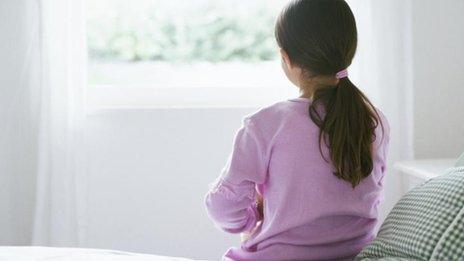More babies with 'special guardianship orders' as adoptions fall
- Published
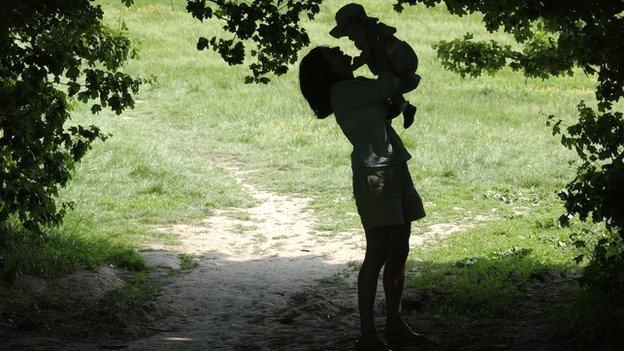
The number of babies being made subject to special guardianship orders in England has tripled in two years, according to data obtained by the BBC.
The measure sees a child placed with extended family, friends or foster parents until they reach 18 instead of being adopted or fostered.
The number of babies involved rose from 160 in 2012 to 520 in 2014, while most of the children are aged four or under.
The number of children placed for adoption has been falling.
The Department for Education says it is reviewing the situation.
But a spokeswoman said the orders were effective in many circumstances.
'Party of support'
Special guardianship is a long-term placement and can be an alternative to adoption or care for children whose parents neglect or abuse them.
The process can be "quite speedy" and "is not nearly as thorough" as adopting, said BBC Today programme reporter Sanchia Berg.
Groups working with families have welcomed the fact more children can live safely with relatives or friends - but there are concerns too.
Andy Elvin, chief executive of fostering and adoption charity TACT, external, said children living with extended family "is a good thing".
But he said there were concerns over whether assessments were detailed enough, saying some family members may not be close to the child before the process begins.
He also raised concerns the level of "post-placement" support was not as high as it was after adoption.
Cathy Ashley, chief executive of justice charity Family Rights Group, said there was evidence that being placed with extended family was beneficial.
But she said it "isn't right that there isn't parity of support".
'Clear and confident'
Hugh Thornbery, chief executive of Adoption UK, said special guardianship had provided "permanence" for many children.
He said: "The research evidence points to their success when used in the right circumstance and where the right support is provided to the carers."
But he added: "Adoption UK's concern is that the drop in adoptions could be partly as a result of over-reliance on special guardianship orders in cases where they may not be appropriate or provide the lifelong permanence that adoption provides."
The last official set of figures for adoptions in England were released in November 2014. They show that in the three months to June 2014, there were 960 initial decisions to place a child for adoption, compared with 1,830 in the three months to September 2013.
There has been a delay in publishing more up-to-date statistics because of the election, but figures cited by the Independent newspaper this month, external suggest the trend has continued.
The British Association for Adoption and Fostering told the BBC that recent court rulings had underlined local councils' need to consider all options, such as placing with birth relatives before seeking adoption.
The Department for Education said: "Councils have told us the way they use SGOs has evolved over the 10 years since their introduction, including a rise in orders for younger children in more recent years.
"That is why we are taking the opportunity to ensure SGOs are only used in the right circumstances, as well as reviewing the existing good practice and support available for special guardians.
"We will report back in due course."
- Published13 May 2015
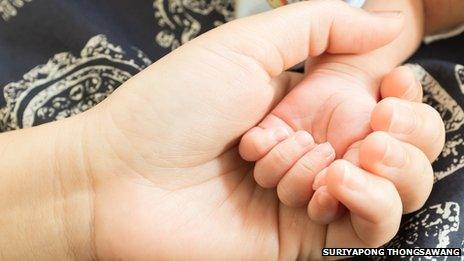
- Published11 March 2015
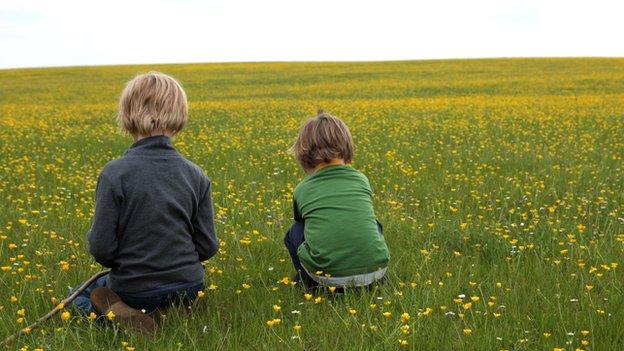
- Published11 November 2014
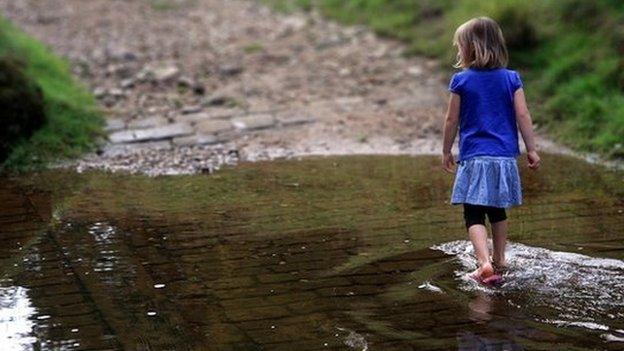
- Published28 July 2014
